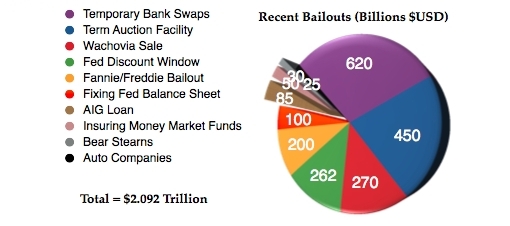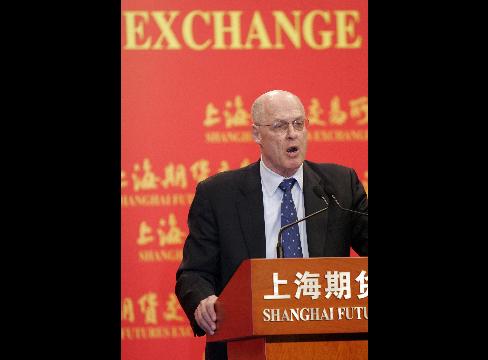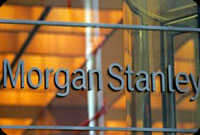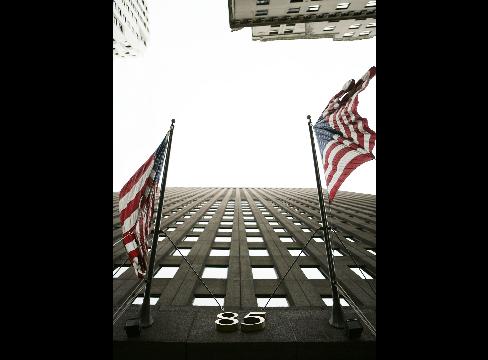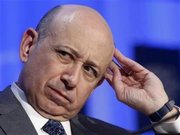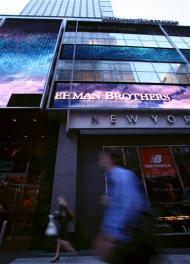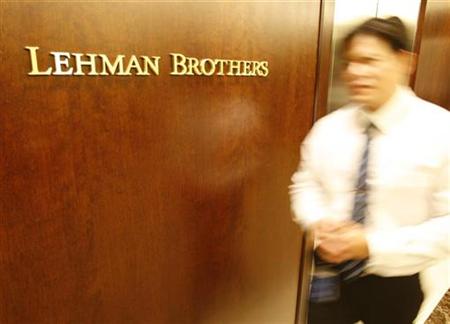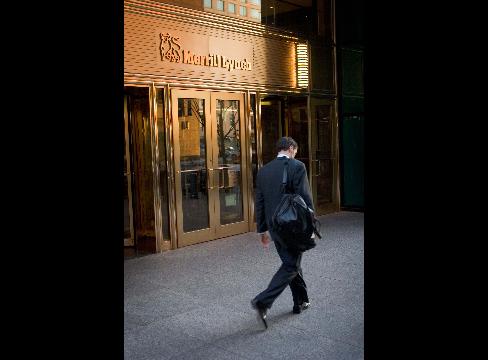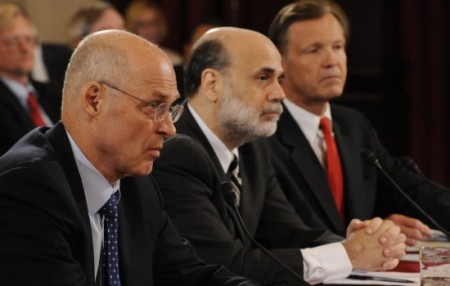
Ben S. Bernanke, chairman of the U.S. Federal Reserve, speaks on a television above a trader in the S&P pit at the Chicago Board of Trade in Chicago, on Tuesday Oct. 7, 2008. Photographer: Joshua Lott/Bloomberg News
Oct. 7 (Bloomberg) — U.S. stocks fell, sending the Standard & Poor’s 500 Index below 1,000 for the first time since 2003, on speculation banks and real-estate companies are running short of money as the credit crisis worsens.
Bank of America Corp. tumbled 26 percent after cutting its dividend in half and saying it plans to sell $10 billion in common stock to brace for a recession. Morgan Stanley, KeyCorp and JPMorgan Chase & Co. slid more than 10 percent as investors shrugged off signs the Federal Reserve will reduce interest rates. General Growth Properties Inc., a mall owner, plunged 42 percent on concern it won’t be able to repay debt.
The S&P 500 slid 60.66 points, or 5.7 percent, to 996.23, extending its 2008 tumble to 32 percent in the market’s worst yearly slump since 1937. The Dow Jones Industrial Average dropped 508.39, or 5.1 percent, to 9,447.11, giving it a 29 percent retreat in 2008 that would also be the worst in 71 years. The Nasdaq Composite Index lost 5.8 percent to 1,754.88.
“We’ve approached the edge of the cliff,” Leon Cooperman, 65, who manages $6 billion at hedge fund Omega Advisors Inc., said at the Value Investing Congress in New York. “Do we go over the cliff or begin to recede? History says we recede, but there’s no guarantee. This is the most difficult financial environment I’ve lived through.”
Read moreU.S. Stocks Drop; S&P 500, Dow Post Worst Retreats Since 1937
